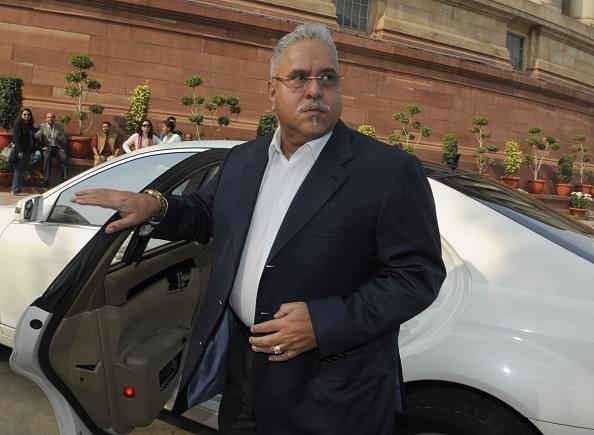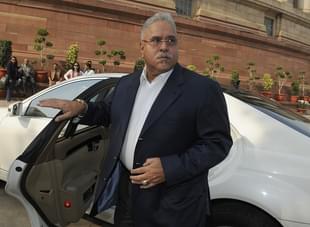Politics
Why Vijay Mallya Is A Fit Case For Expulsion from Rajya Sabha
R Jagannathan
Feb 26, 2016, 11:56 AM | Updated 11:56 AM IST
Save & read from anywhere!
Bookmark stories for easy access on any device or the Swarajya app.


- Vijay Mallya owes more than 7,000 crore from public sector banks who have declared him a wilful defaulter.
- Some 500 crore was collected by him yesterday for his personal purposes from United Spirits.
- If the cash-for-questions scam of 2005 was big enough for expulsion of MP’s from Parliament then the above are even stronger grounds.
Remember the cash-for-questions scam of 2005, when 11 members of parliament - many of them from the BJP - were expelled on the basis of a sting operation which showed that they had accepted paltry amounts of money for raising questions in parliament? It was convenient for the UPA to have them out, since the Manmohan Singh government was not stable at that time. Ten Lok Sabha MPs and one from the Rajya Sabha were turfed out in a fit of ethical outrage that parliament never found the courage to summon up later, when multi-thousand crore corruption scandals surfaced at regular intervals during UPA-1 and UPA-2.
And guess who was in charge of probing their conduct and recommending their ouster? Pawan Kumar Bansal, the Railway Minister in UPA-2 who himself lost his job when a relative of his was accused of selling crucial top jobs in the Railway Board to crooked aspirants.
The point of bringing this out now is simple: the Rajya Sabha now has a member who owes over Rs 7,000 crore to public sector banks, has been declared a “wilful defaulter” by many of them, and on whom employees, the taxman, and the provident fund organisation have claims, but he continues to be a lawmaker and member of important parliamentary committees.
His term as a Rajya Sabha MP ends by mid-2016, but the house’s conscience has not been aroused by having a lawbreaker and crony businessman as lawmaker when it managed to work up a froth over ordinary MPs accepting a few hundreds to merely raise questions in parliament - an unethical act, no doubt, but with limited potential for damage to anyone.
Yesterday (25 February), the man collected a booty of over Rs 500 crore ($75 million) from Diageo-controlled United Spirits, a company he used like personal property and in which Diageo accused him of improper funnelling out of money to related firms. Diageo now has worked out a peace deal with him where, for $75 million, he leaves the company and also gets a reprieve from all the allegations of improper use of funds.
Diageo has essentially let down its own minority shareholders as it has essentially withdrawn all claims on Mallya and given him a hefty payoff for a five-year non-compete clause. Either Diageo used these claims only as a pressure tactic to get him out, or it is guilty of not pursuing the interests of United Spirits shareholders diligently.
It is more than likely that Mallya’s willingness to exit has been prompted by the fact that the law is closing in on him in India, with banks declaring him a “wilful defaulter”, which means he will soon have to quit other boards, under the new, tighter norms declared by the Reserve Bank of India (RBI). Boards which house wilful defaulters can be denied banks loans, among other things.
Now, having exited United Spirits, Mallya will probably stay far away from India, possibly making it tougher for banks to enforce their claims on him.
If there is a fit case for the Rajya Sabha to act against an MP who has brought shame on the institution by behaving unethically with India, its taxpayers and his former employees at Kingfisher, it is this. The Upper House should waste no time in expelling Vijay Mallya from the house, even if it is of only symbolic value, given that his term ends just a few months from now.
Jagannathan is former Editorial Director, Swarajya. He tweets at @TheJaggi.




